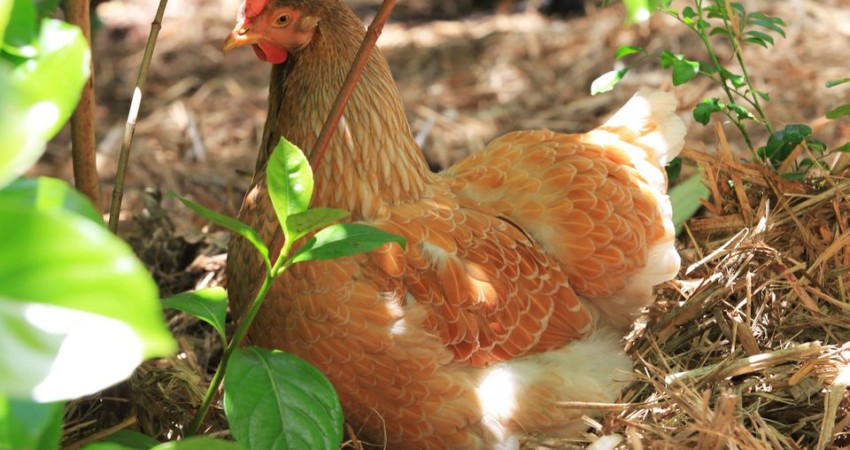

Many poultry keepers feel stressed, anxious and betrayed when they open up their poultry houses to discover not a single egg has been laid. There are severe reasons why you may experience this in your chicken.
Molting cycle
It’s quite natural for chickens to molt. This is a natural process that causes all chickens to shed their feathers, as their body prepares itself to grow even more full and beautiful plumage. Over these months your laying hens will look slightly haggard and world-weary, however this is an entirely natural and essential part of being a chicken. One of the important thing to note is that during this time you need to be vigilant and ensure that your laying hens are getting a balanced diet of protein (chicken feed) and calcium (shell grit). Other treats, like greens, as they often contain helpful vitamins and nutrients that will help your laying hens through this sometimes difficult time. The upside is if your laying hens continue to lay after their molt it is likely that your chickens with lay larger eggs. So, don’t despair when your laying hens start to molt, just look at it as though your chickens are upgrading their egg maker.
Wrong food in their diet
Fat chicken won’t lay eggs. There is the false perception between some well-meaning chicken lovers that a fat and happy chicken may in fact produce larger and more scrumptious eggs, however this is a total fallacy. Overweight laying hens, generally speaking, are quite unhealthy and their bodies won’t be able to function as they would if they were at the correct weight level. So, make sure that you only give your laying hens the right kinds of treats, as well as maintaining a balanced diet of chicken feed, shell grit and plenty of water.
Not enough time in the sun
Not all first time poultry keepers know that laying hens need plenty of time out in the sunshine, otherwise they are unable to produce their eggs. This is due to the fact that there is a gland that exists behind their eyes, which in response to sunlight produces certain types of hormones that cues the chicken’s body to begin egg production- that’s a very simple way of explaining it. Generally speaking laying hens require approximately 14-16 hours of daylight in order to produce eggs. This is why it’s so important for your laying hens to be let out of the coop early in the morning so that they can lap up the sun.
Old age
Average laying hens will begin to produce fewer eggs once they are 72 weeks old. They can continue to lay for one, two, maybe even three more years, but the eggs will gradually become fewer and fewer. At the end of the day there is no way from stopping laying hens from getting older.
Getting broody
There comes a time in every chicken’s life when they feel compelled to become a mother. As most chicken owners don’t allow their laying hens to spend some quality time with a rooster, some chicken get very confused and believe that their eggs might be fertilized. This is commonly referred to as broodiness and it often effect chickens for five to ten weeks. If you suspect that your hen might be getting a bit broody there are a few things that you can do which will help relieve some of the stress of what is basically a hysterical pregnancy.
Stress
Chickens may seem like tranquil creatures but during the laying season they are delicate and neurotic artists who need total concentration, otherwise they won’t be able to produce their eggs. There are things that can cause your laying hens to feel distressed and distracted, such as untamed dogs, predators and enthusiastic owners who might be sticking their beaks into the nesting boxes too regularly. Additionally, moving your laying hens to a new coop or introducing new chicks to the flock can also stress your chickens out, which in turn will inhibit them from laying. It’s a good idea to delay any major changes that will directly alarm your laying hens to a time of the year when you don’t expect them to be laying anyway.
Mites and lice
If you’re still unsure what might be causing your chickens to stop laying you may want to consider taking your laying hens for a check-up at the vet. Firstly though, check to see if there are any mites or lice inside that coop or on their skin that may be causing them distress. If you do find some mites or lice simply clean out the coop and consider giving your chickens a wash, otherwise the mites will continue to torment your chicken and you won’t be able to enjoy their scrumptious eggs.
Disease and discomfort
There are a whole host of disease that laying hens can catch will often result in some terrible symptoms, which normally includes a reduction in egg production. Disease include Leukosis and Coccidiosis. Most disease will often result in your chicken experiencing a period of Diarrhoea, which is characterised by excess mess around the chicken’s vent. Once again, in the event you notice any typical signs of symptoms, which can include uncharacteristic reduction in eggs, please contact your local vet.
 Contact Jaguza Support
Contact Jaguza Support